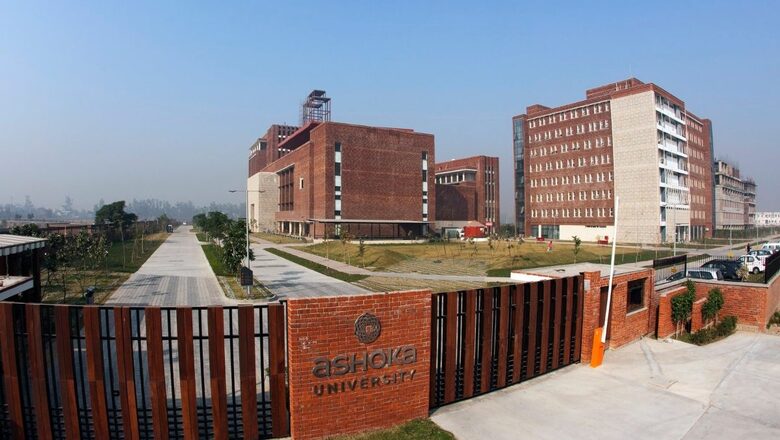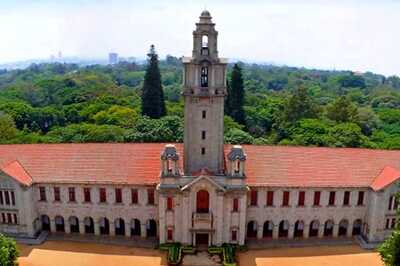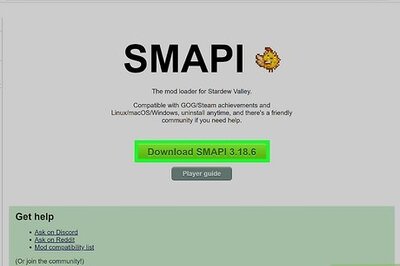
views
The Intelligence Bureau (IB) paid a visit to Ashoka University a couple of days back. It was reported that they wanted to meet with Sabyasachi Das, the author of the controversial and as yet unpublished paper “Democratic Backsliding in the World’s Largest Democracy”. Das, whose resignation was accepted by the university, is now in Pune, at the Gokhale Institute of Politics and Economics. The IB also visited a second time to interact with some members of the Economics faculty at Ashoka.
Ashoka’s Foreign Contributions Regulations Act (FCRA) approval, which would allow them to receive foreign funds, is also up for renewal next month. The government is thus sending a clear signal to the university — fall in line or face the music. Or, as the colloquial idiom goes in Hindi, “Nadi mein rahna hain to magarmachh se bair nahi kar sakte.” Clearly, no ruling regime would like a prestigious university such as Ashoka to turn into a political platform against it.
In light of these developments, let us examine the faculty demand to reinstate Das, which I spoke of in my last column. First of all, it is crucial to recognize that it exemplifies a non sequitur. If the university had fired Das, the agitating faculty might have demanded his retention by the university. But Das has resigned. Therefore, surely, they should first ask Das to withdraw his resignation. Incidentally, when the IB visited asking for Das, the authorities said that he was on leave.
So what is the truth — has he resigned, is he on leave, or was he fired?
Let us go so far as to assume that Das was “pressured” into leaving. Even so, the onus of proving that is on those demanding his “unconditional” reinstation by the university authorities. The rub of the matter is what kind of contract Das had and what the exact circumstances of his resignation were. The faculty demanding his return have conveniently elided all such matters. Instead, they have brazenly targeted the university in open letters, splashed all over the media.
This casts aspersions and suspicions on their intentions. Instead of quieter, off-the-record, negotiations to get a valued colleague back, they have chosen to embarrass, even attack their university, pressurising it and threatening it instead. What this means is that we are witnessing an open war between the university administration and one section of the faculty. The demand to bring Das back is thus a political and ideological one and must be dealt as such by the university.
In my book, JNU: Nationalism and India’s Uncivil War (2022), I showed how a university can, over time, be completely taken over by a politically motivated group of faculty and students. Instead of furthering the primary aims of teaching and research, it can turn into a political hotbed, serving as a breeding ground for cadres of political parties. It can even be turned into a platform against an elected government, as happened in JNU in 2016, with classes coming to a standstill and the university shut down indefinitely.
Luckily, Ashoka University’s situation is not that bad. Not yet. But at the root of their present difficulties is a foundational, if not fundamental, problem. Its founders are not academics, but businessmen and philanthropists. In order to build a “world-class” university quickly, they relied on who they considered “industry leaders” — in this case, a certain class of Western-trained academics. These, in turn, especially in the humanities and social studies — or Liberal Arts — brought in what we would today call “woke” faculty. Indeed, you would have to look far and wide to find a single right-of-centre voice at Ashoka.
The university was infiltrated, one might even say captured, discipline after discipline, by such ‘LeLi’ faculty members. They exercised their familiar command and control tactics to keep out anyone who did not conform to their ideological or academic leanings. All in the name of supposedly international standards of excellence. Faculty fixing is a well-known racket worldwide — there are a hundred ways to keep out “undesirables.”
In Ashoka’s case, being a private university, open advertisements, shortlisting of candidates according to established criteria, statutory reservations, selection committees with nominees from the UGC or the government, and similar other safeguards did not have to be followed. Not to say that the latter are foolproof when it comes to selecting the best. The state-run system is also susceptible to fixing. Things are so bad nowadays that candidates to be selected are sometimes dictated to university Vice-chancellors or members of the selection committee.
The truth is that no system, whether state-run or private, is perfect or entirely safe from manipulation. But what is common to both is that faculty selections are probably the single most important factor in a university’s credibility and future. If faculty selection is vitiated by ideological preferences, one can be sure that it is only a matter of time before an academic discipline or department resembles an echo chamber with similar views and voices ricocheting off the walls. Soon the students also began to parrot if not the party line, at least the faculty line. The scope for differing points of view, let alone dissent, is severely cramped, even policed. The opposite of what a Liberal Arts education is all about.
This is the fate that Ashoka suffered from. It came to be criticised as an “illiberal” rather than Liberal Arts institution. In addition to the one-sided recruitment, there was also the usual virtue signalling and genuflecting to Western intellectual patrons, so essential to our post-colonial academic ecosystem. Soon, most disciplines were populated by almost no other faculty except anti-government, anti-BJP, and anti-Modi ones. Here is where the comparison with Jawaharlal Nehru University comes in handy.
Ashoka was founded with much hope and hype in 2004. But in less than a decade of its existence, it has come to be identified with, or typecast as, being critical of the ruling dispensation. A chorus of voices, perhaps orchestrated, has even started calling it “anti-national”. Certainly not a useful tag for a young and growing university, with declared ambitions of producing future Nobel laureates.
When a university allows itself to be hijacked by a small group of vocal opponents of the government, no good comes from it — this has been JNU’s experience. The founders and members of the governing body have, in the last couple of years, “woken up” to the deleterious, if not disastrous, consequences of such a negative branding. One way forward would be to let some people go – the ring leaders, so to speak –and bring in new faces and voices. If so, the present crisis could actually turn into an opportunity.
The writer is an author, columnist, and professor at Jawaharlal Nehru University. Views expressed in the above piece are personal and solely that of the author. They do not necessarily reflect News18’s views.




















Comments
0 comment